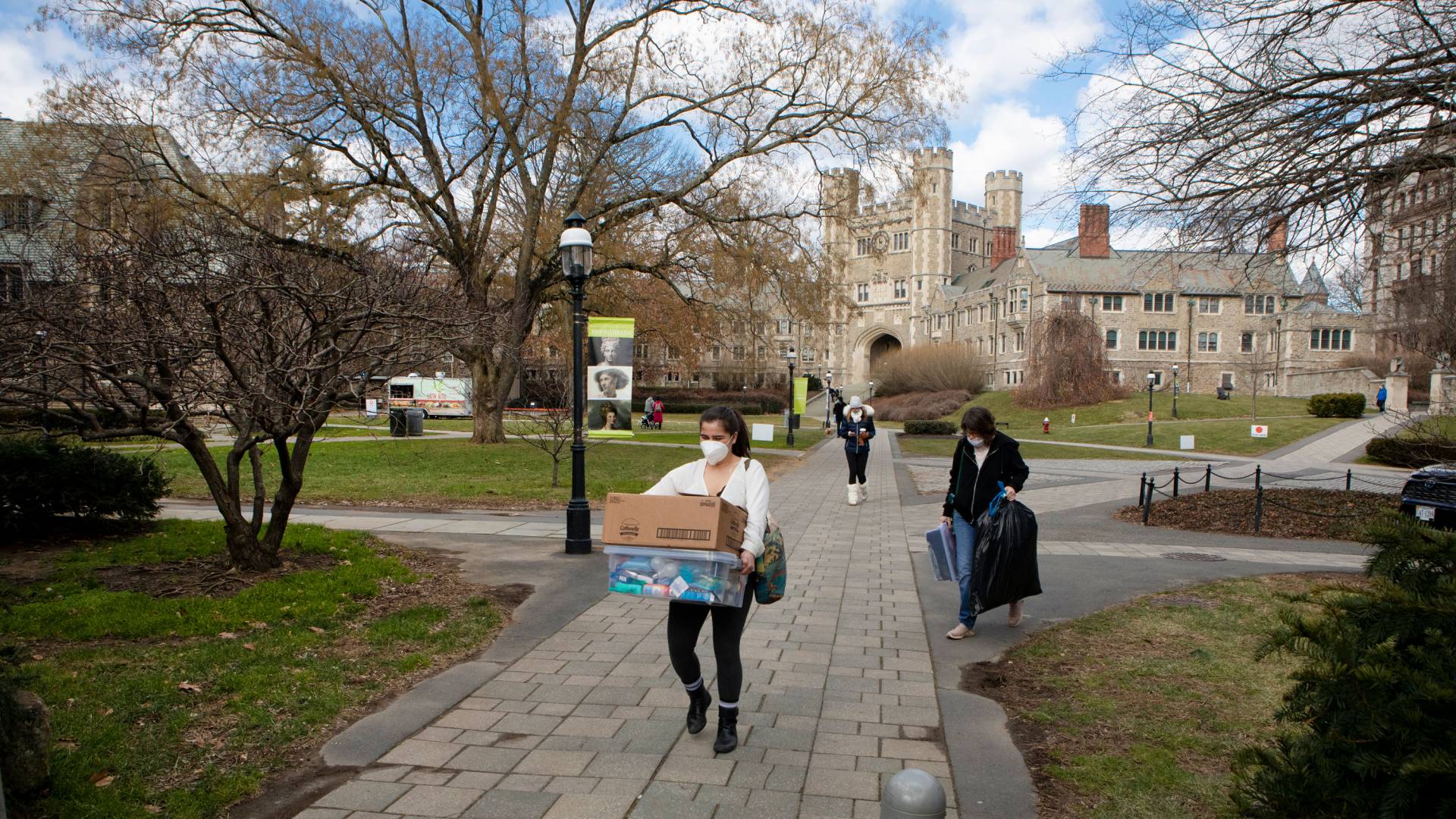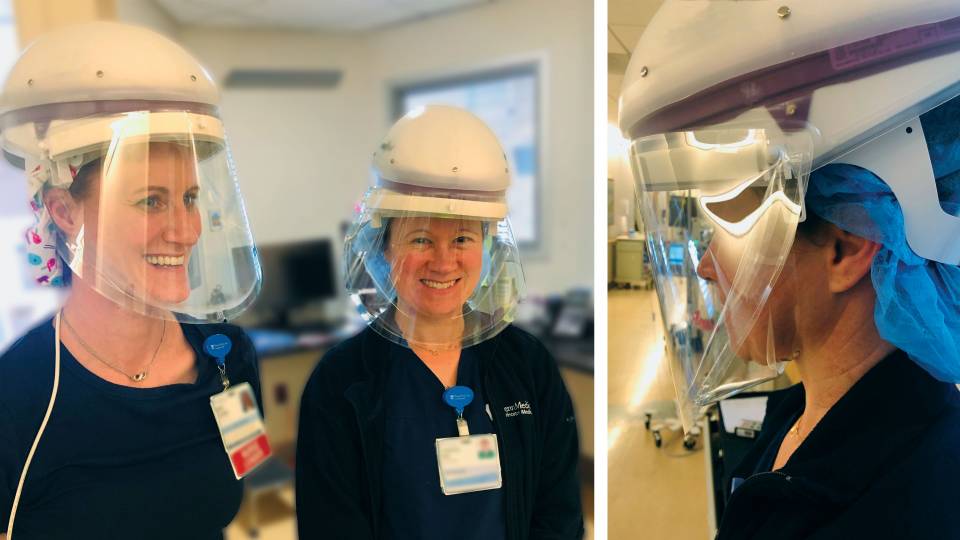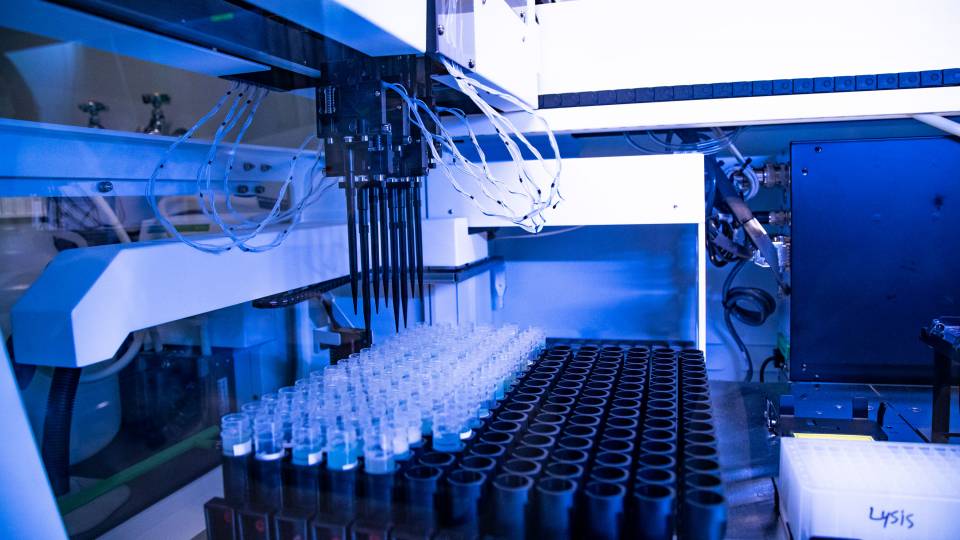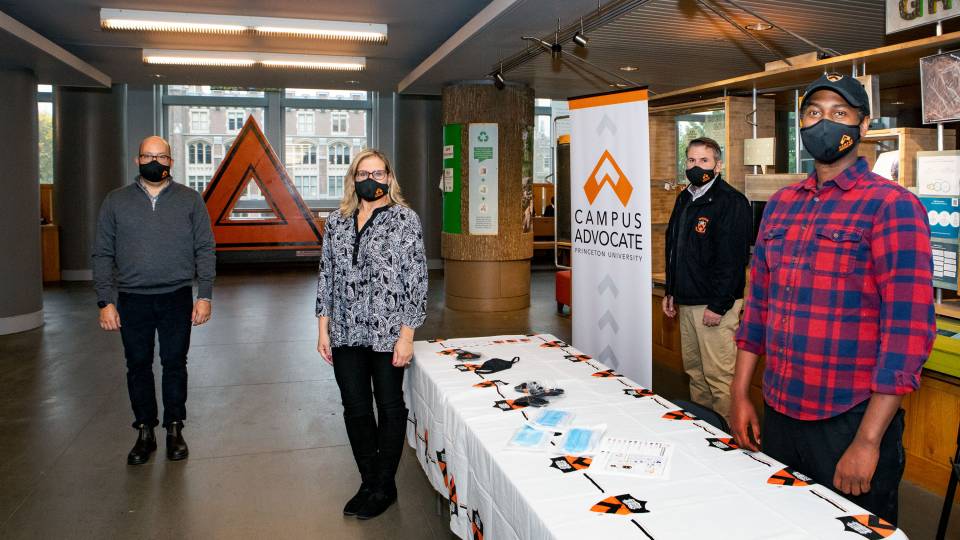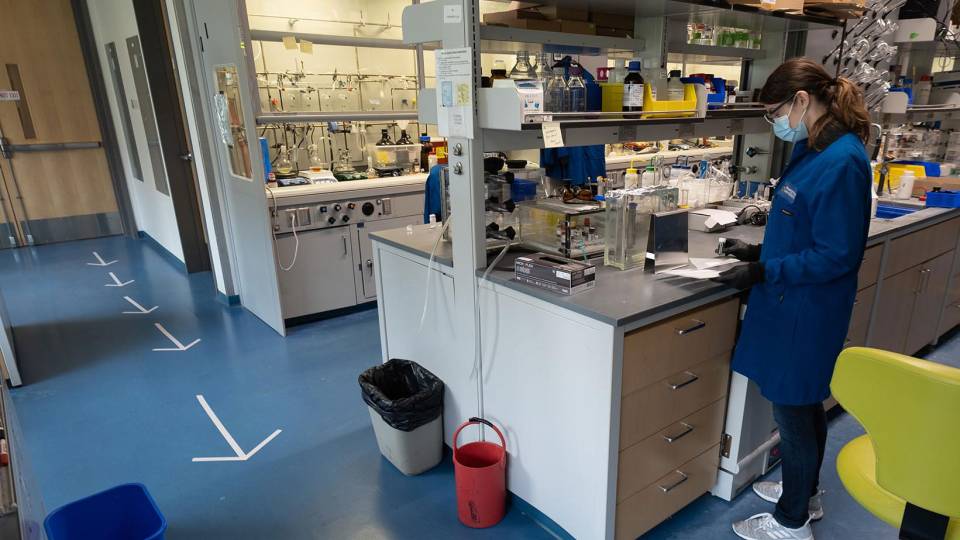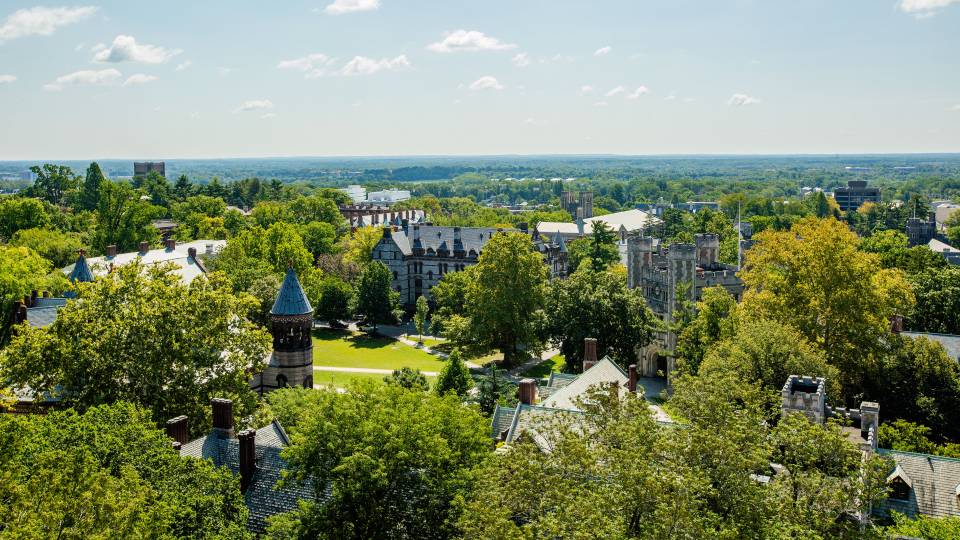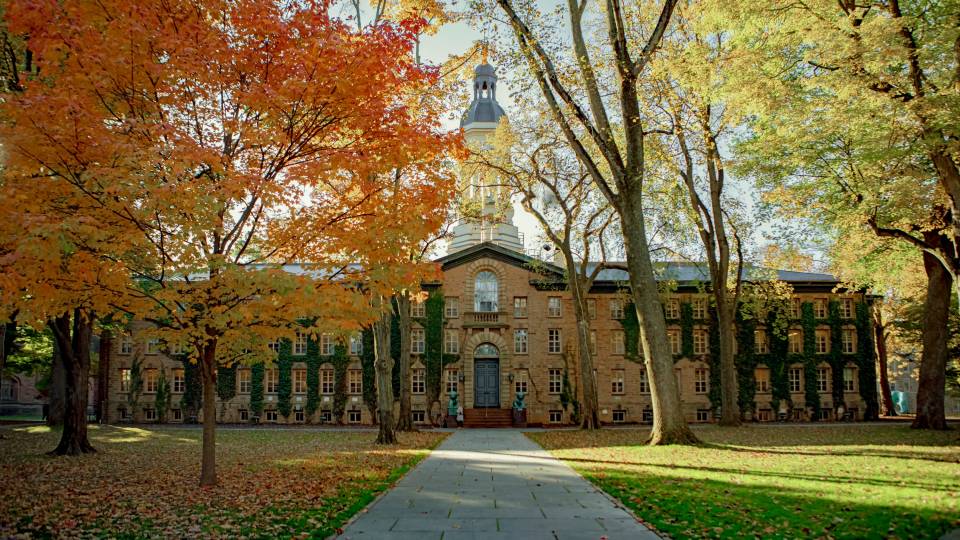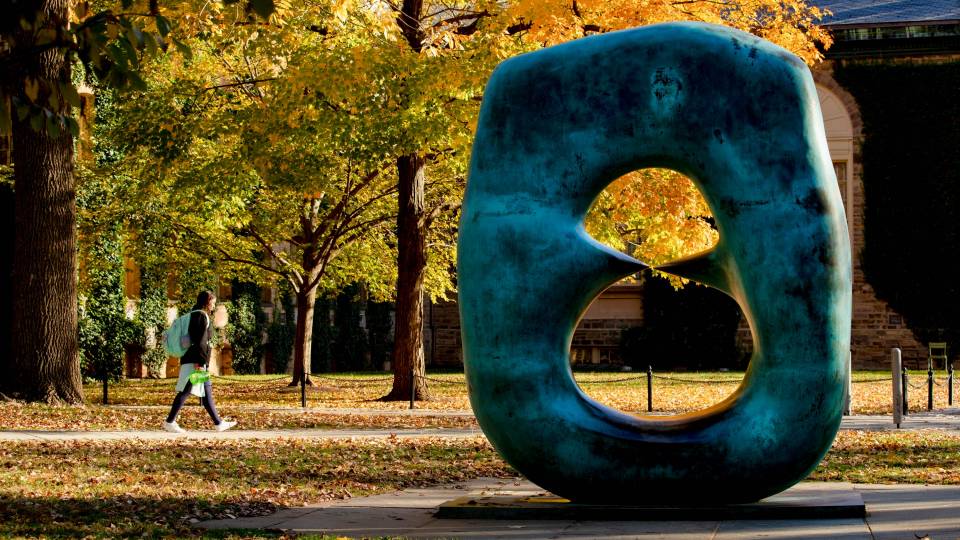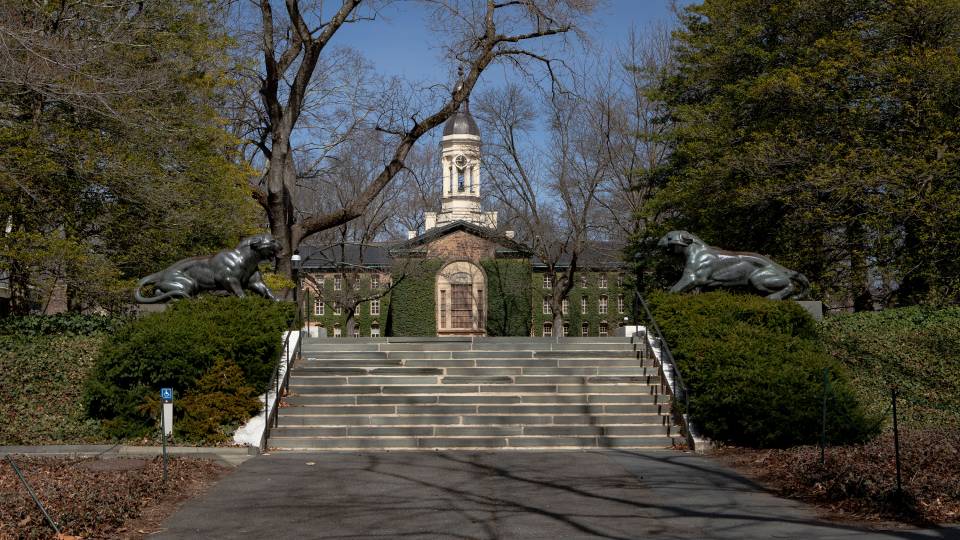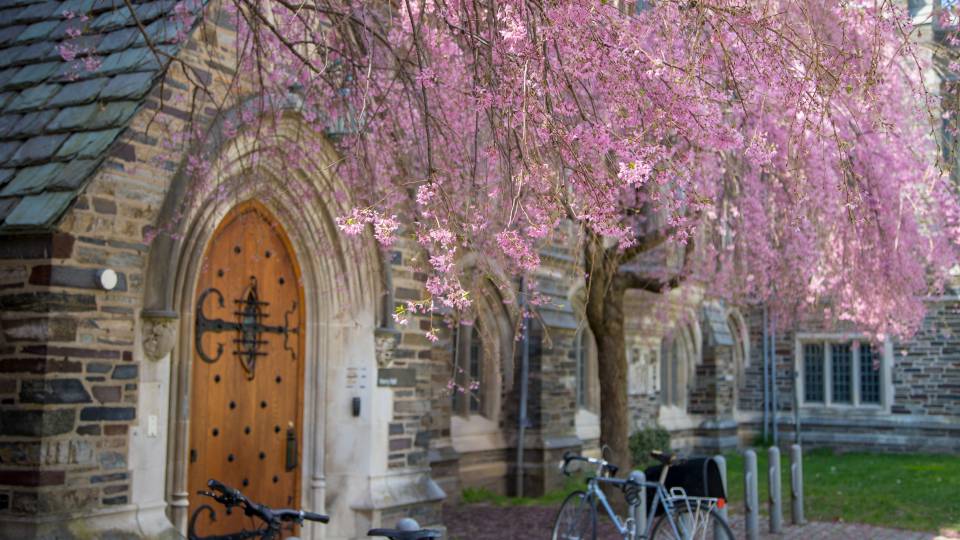A phased undergraduate move-in began at Princeton University on Jan. 16 and will run through Jan. 24. Undergraduates were invited — but not required — to return to campus for the spring 2021 semester. The University is working diligently to support the health and safety of the students, staff and faculty living and working on campus this spring.
As undergraduates move back to Princeton for the spring semester, virtually every facet of the University is working diligently to support the health and safety of the students, staff and faculty living and working on campus. A phased undergraduate move-in began on Jan. 16 and will run through Jan. 24.
Approximately 2,887 undergraduates will live in campus housing and nearly 670 undergraduates plan to live locally (spanning Mercer County and Plainsboro, New Jersey). Undergraduates were invited — but not required — to return to campus for spring 2021, though most classes remain online.
Undergraduates on campus and undergraduates living locally with access to campus must participate in the University’s asymptomatic testing program. Since move-in started, more than 3,300 asymptomatic tests have been given to undergraduates living on campus and locally. Of these total tests, only 12 have been positive for COVID-19, which is a 0.4% positivity rate. The students who tested positive were moved into isolation and contact tracing was conducted.
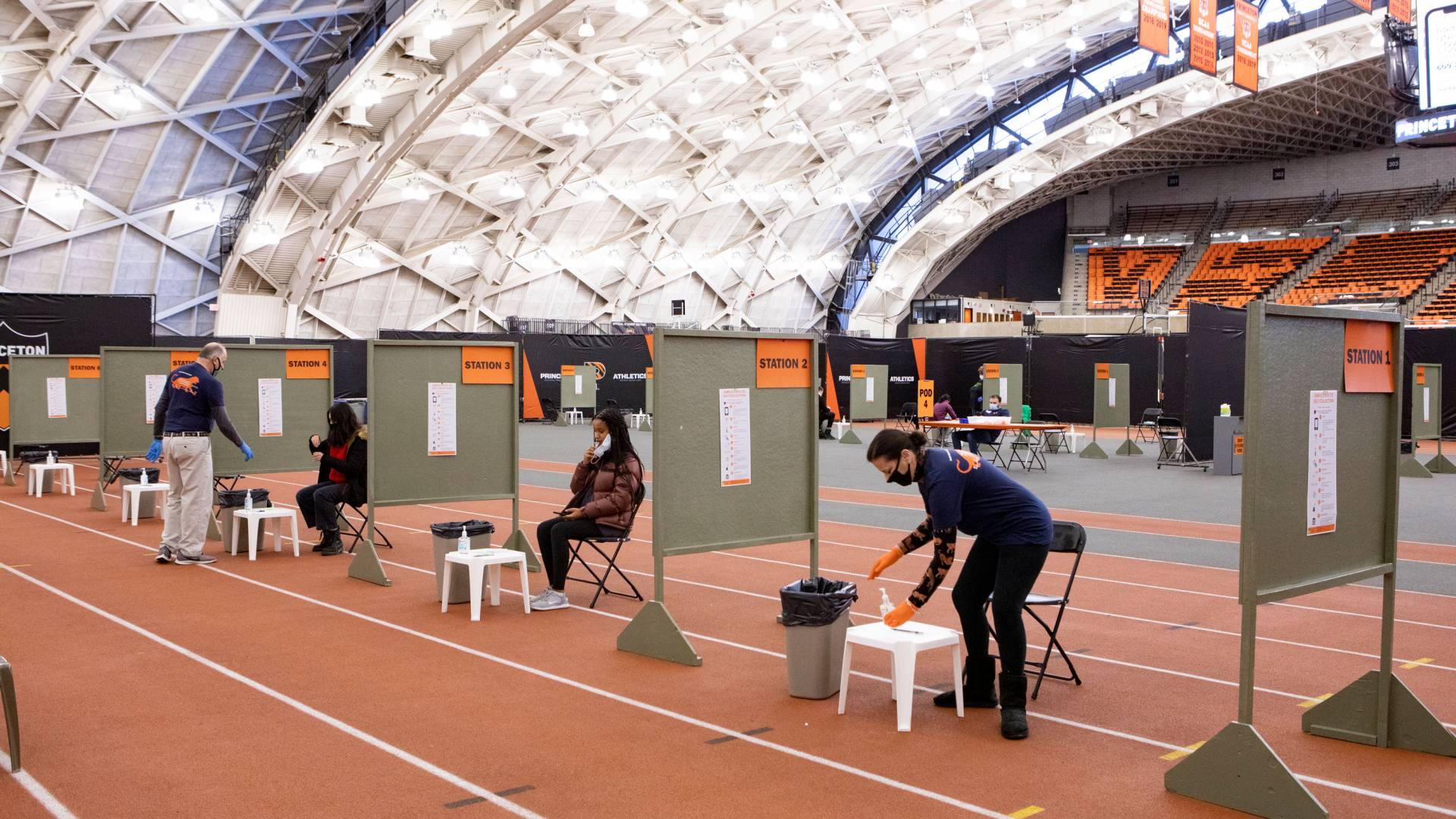
Jadwin Gymnasium is set up for an asymptomatic COVID-19 testing clinic during undergraduate move-in on Jan. 16-24. After undergraduates submit a saliva test at the Jadwin Gym clinic, they may move into their dorms and immediately begin the University’s arrival quarantine protocol. Undergraduates may not leave their sleeping space, except to use the restroom, until receiving a negative first test result.
Students moving back to campus during the day first stop at Jadwin Gym for COVID-19 testing. After Jadwin Gym, students move into their dorms and immediately begin the University’s arrival quarantine protocol. Undergraduates have been assigned single sleeping spaces to limit the spread of illness, and students may not leave their sleeping space, except to use the restroom, until receiving a negative first test result.
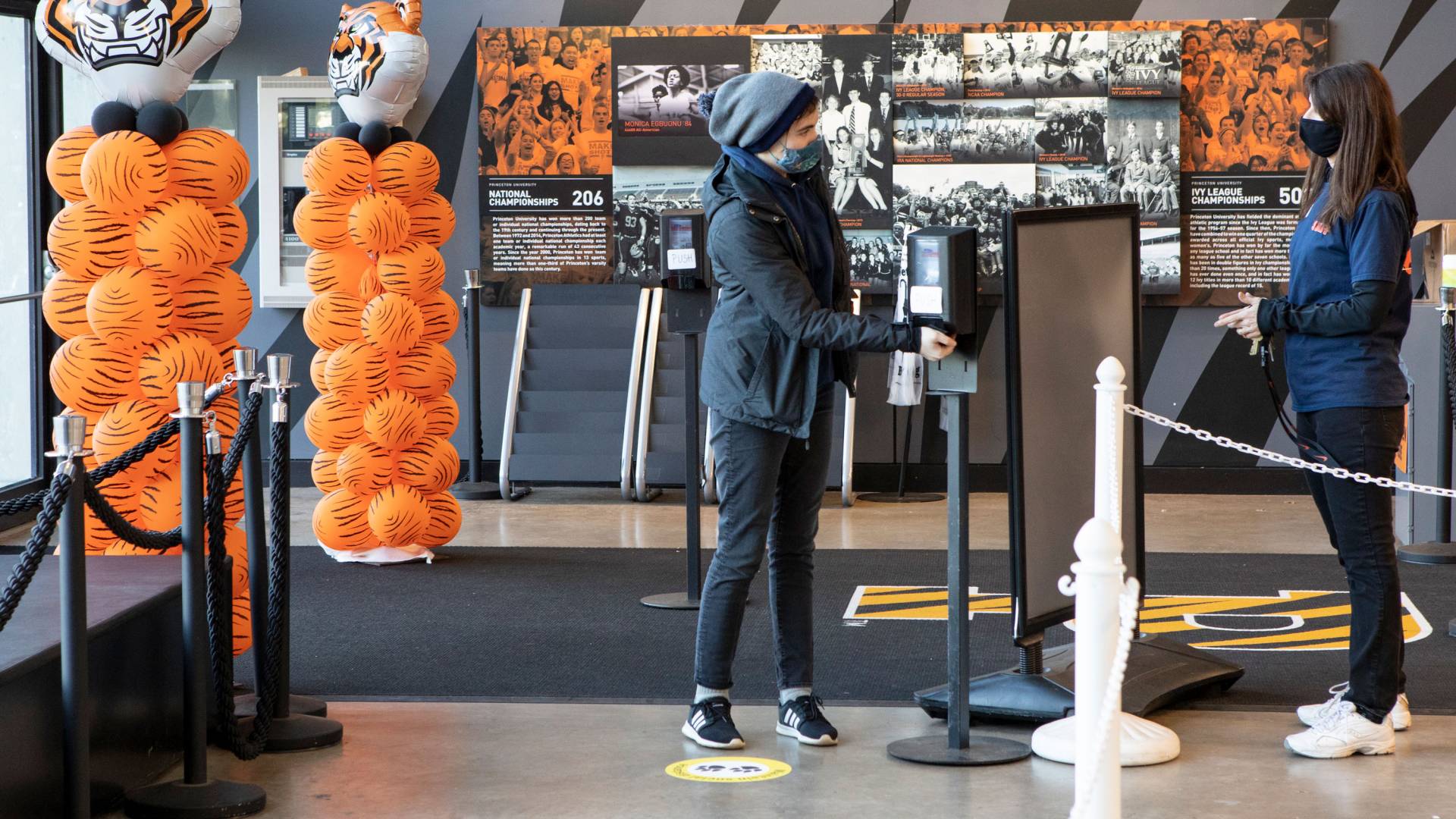
A student uses hand sanitizer before entering the asymptomatic COVID-19 testing clinic in Jadwin Gym on Jan. 17.
To keep students informed of COVID-19 guidelines, the University launched a robust public health campaign called the Princeton Playbook. The Playbook consists of four key plays — Prepare, Protect, Participate and Persist — and educates the campus community through social media, videos, emails, posters and signage.
The University’s Social Contract requires undergraduates to follow health and safety rules while in their dorm rooms, campus buildings or public spaces. Undergraduates must participate in regular asymptomatic COVID-19 testing, complete a Daily Symptom Check via the TigerSafe app, follow quarantine and isolation procedures, and comply with UHS’ contact tracing efforts.
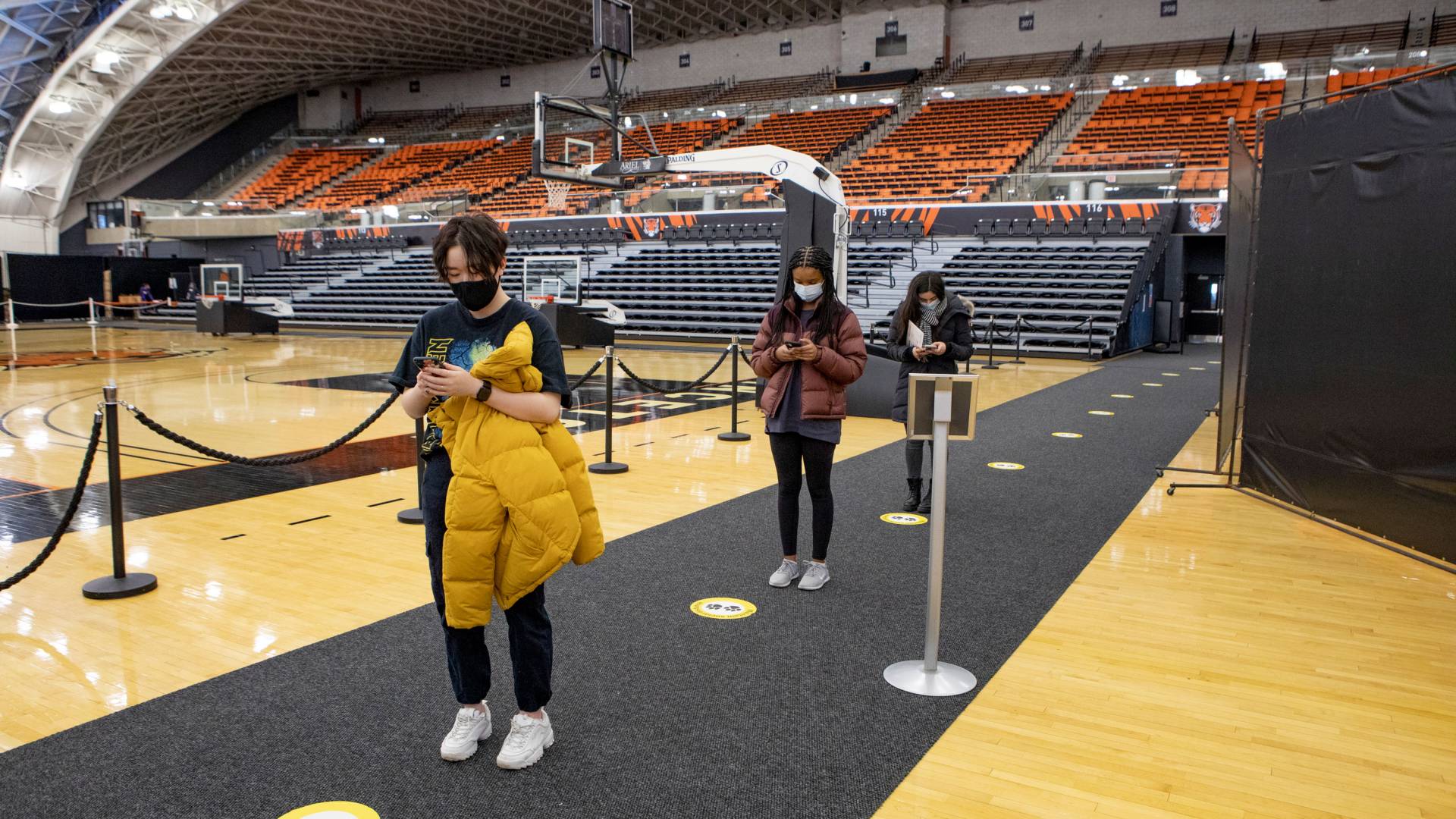
Social distancing stickers mark the floor of Jadwin Gymnasium to remind students to stay six feet apart. To keep students informed of COVID-19 guidelines, the University launched a robust public health campaign called the Princeton Playbook. The Playbook educates the campus community through social media, videos, emails, posters and signage.
During the next two weeks, students can participate in virtual Wintersession activities while quarantining in their dorm rooms. Wintersession features classes taught by students, faculty and staff, and live streamed concerts, artistic performances and conversations with guest speakers such as ACLU Executive Director and Princeton alumnus Anthony Romero.
Spring term classes begin Feb. 1. While most undergraduate instruction will remain online, about 15 undergraduate courses will be taught in a hybrid fashion or have significant in-person course components. The McGraw Center for Teaching and Learning provides guidance for virtual teaching and the safe use of classroom spaces for hybrid instruction. Social distancing and masks are required inside all campus buildings and classrooms.
Most faculty and staff continue to work remotely, while staff in essential roles work on campus. Since Princeton is the permanent residence for many graduate students, they have remained in campus housing during the pandemic, though graduate instruction is virtual. Employees and graduate students on campus must also participate in regular asymptomatic testing and follow safety guidelines including mask wearing and social distancing.
More information about the spring semester is available on spring2021.princeton.edu, while public health information for the campus community is available on covid.princeton.edu. For questions not answered on these websites, the Princeton University COVID Connector Support Line is available by phone at (609) 258-7000 or by email at covidconnector@princeton.edu from 8:45 a.m. to 5 p.m. EST Monday through Friday. The COVID Connector will also be open this weekend Jan. 23-24 to answer questions about move-in.
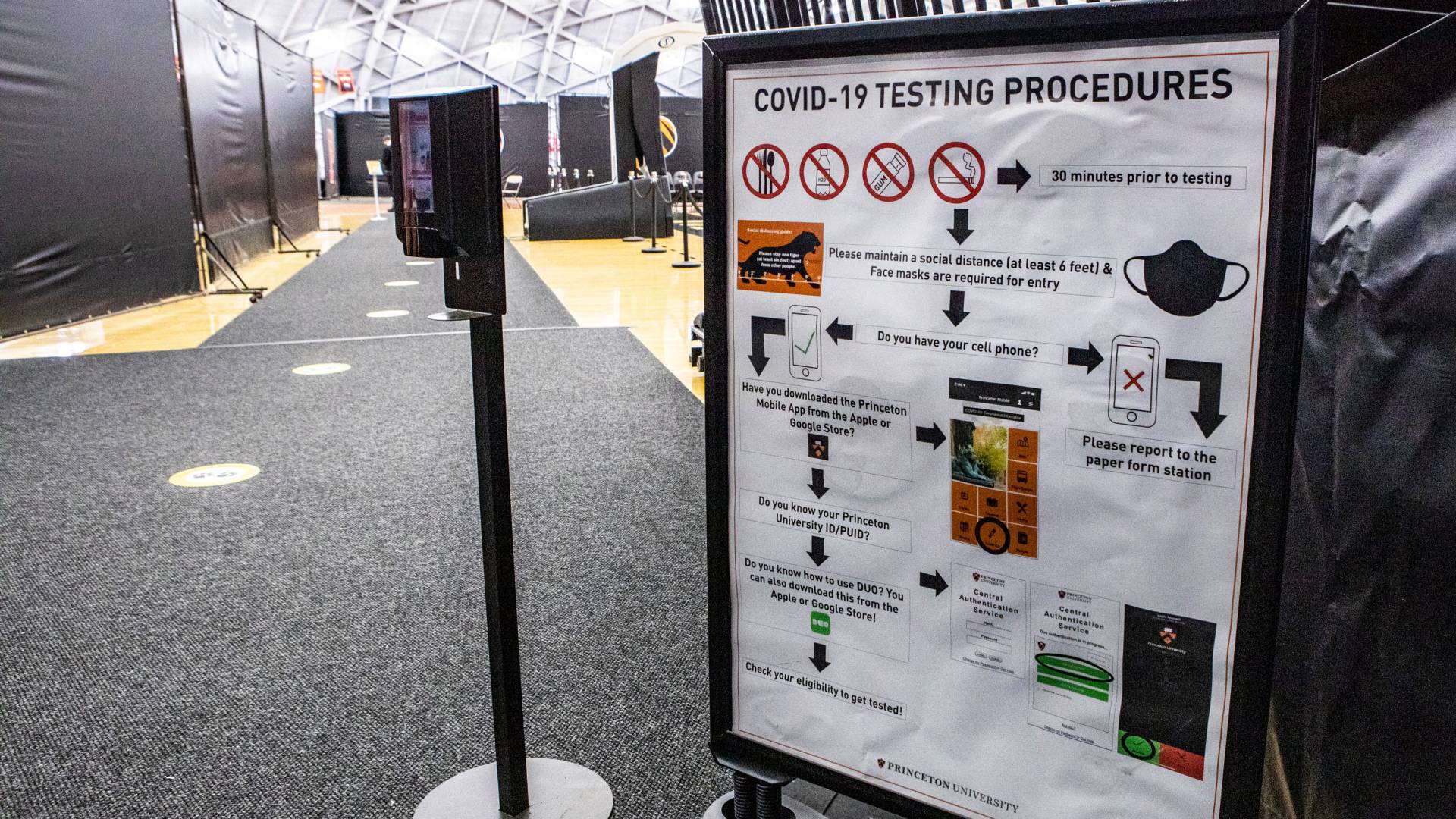
A sign outlines the COVID-19 testing procedures before undergraduates enter the clinic in Jadwin Gymnasium. The University’s Social Contract requires undergraduates to follow health and safety rules while in their dorm rooms, campus buildings or public spaces. Undergraduates must participate in regular asymptomatic COVID-19 testing, complete a Daily Symptom Check via the TigerSafe app, follow quarantine and isolation procedures, and comply with UHS’ contact tracing efforts.
